A hotel website is crucial for success in today’s industry. In this article, you’ll find out why. You’ll discover the reasons for setting up a quality hotel website, what features your site should have, and how to make your hotel’s page stand out. You’ll also look at some examples of outstanding hotel websites.
Table of Contents:
- What Is the Hotel Industry?
- Why Is Hotel Website Important for Hotels?
- 6 Hotel Website Examples: Important Features
- 7 Great Hotel Website Examples
- More Bookings with your Hotel Website
- Social Media Marketing Connection to Hotel Websites
- Hotel Design: Why it Matters
What Is the Hotel Industry?
To understand why a hotel website is so important to your hotel business, it’s useful to consider the industry in general. Along with leisure, travel and tourism, and food and beverages, the hotel industry forms part of the hospitality industry. Specifically, the hotel industry is the hospitality segment primarily concerned with accommodation.
Of course, most hotels offer other hospitality services, such as hotel restaurants, spas, gyms, and more. Their central purpose, however, is to provide overnight accommodation to the public. The hotel industry is an old and distinguished one, forming a large part of the global economy and providing countless job opportunities across a range of competencies and skill levels.
Because the hotel industry is concerned with delivering a service to the public, often for leisure purposes, your hotel must always be presented in the best possible light. To learn more about the hotel industry, read “Hotel Industry: Everything You Need to Know About Hotels!”
Why Is Hotel Website Important for Hotels?
A good-quality hotel website isn’t just valuable for hotel marketing, and it’s indispensable. Having good website design is almost as valuable as housekeeping duties. When people are looking for a hotel nowadays, they are almost certain to search online first.
Your website needs to be engaging, mobile-friendly, easy to navigate, and optimized for search engines so your customers can find it. Customers searching for hotels in your area should be able to find your hotel in the first few search results.
Your site should include a booking system, which is key in modern hotel technology, that’s easy to use and find. Another indispensable element is a selection of high-resolution images of your premises — not just the rooms but other highlights. Showcase your hotel restaurant, the bar, the grounds, gyms, and other appealing features to generate interest. Consider adding videos, too.
6 Hotel Website Examples: Important Features
To have a successful hotel website, these are some of the most important hotel website examples features to include.
Direct Booking Feature
Every hotel website needs a direct booking feature. Online travel agencies (OTAs) are a great way to expand your hotel’s reach, but you should also have a way for guests to book directly through your website. You’ll increase conversion rates by allowing customers to book directly when they land on your site.
Another reason is that you’ll have more control over your hotel’s appearance than on an OTA site. You can also link your booking system to your property management system so that customers see accurate availability and live room rates.
Video: 3 Smart Tricks to Increase Direct Bookings on Your Hotel Website | The Hotel Club
Clear Hotel Information
Besides the essential details like location, your website should allow customers to see why they should book with your hotel over the competition. You don’t need to overload your site with details, but you should give customers key features. As a hotel owner, you know what makes your hotel special.
Showcase your hotel’s amenities and ensure that any visitor can immediately pick up on the qualities that make your hotel shine. For example, if your establishment caters largely to business travelers, let visitors know about your conference suites and meeting rooms. As a hotel owner, you know what makes your hotel special.
Mobile Friendly Design
You’ve already learned that a hotel website needs to be mobile-friendly. This is a must for today’s consumers. An increasing number of bookings are made over mobile devices, and your site should capitalize on this. Your hotel website needs to be responsive: it should look good and work well regardless of the device the customer is using.
A site that looks fantastic on a desktop but is impossible to use on a smartphone will represent a barrier for your customers, especially travelers away from home or the office. Ensure your site works well across all devices, browsers, and operating systems.
Website Speed
A slow, sluggish hotel website is a real barrier to conversion. If your site takes too long to load — more than three seconds — customers won’t stay on the page long enough to book a room. All the most important content should be at the top of the page so that the customer doesn’t have to scroll down.
Images on your site should be optimized for speed, and above-the-fold content should load speedily. You can use many tools to ensure your website loads rapidly to avoid losing customers.
Clear Hotel Branding
Branding is vital for a hotel, and your website should reflect your hotel’s brand. If your website looks shoddy or simply isn’t in keeping with your usual branding, it may make visitors distrustful. Keep to the same colors and fonts in your other materials, and ensure that your website design reflects your hotel’s character.
A crisp and minimalist design will appeal more to business travelers, while an extravagant and image-rich site will be more in keeping with a luxury brand. Consistent branding is important for any business, especially hotels.
Video: Hotel Website Design – What does it say about your business?
High-Quality Images
The need for high-quality, web-optimized images on your hotel website can’t be emphasized enough. Customers want to know as much as possible about where they’ll be staying and will rely on the impression your images convey. If it’s within your hotel budget, a professional hotel photographer can be a great investment.
The right images can help to make your hotel stand out from your competition, impressing visitors to your site and converting them into enthusiastic guests. Include video content and 360-degree interactive images for an even more immersive experience. Consider using images from various hotel departments to spotlight your quality staff.
7 Great Hotel Website Examples
In this section, you’ll take a look at some examples of great hotel websites.
La Mamounia
La Mamounia’s hotel website is a perfect example of the ideal page for a luxury hotel. The colors and fonts are carefully chosen to express extravagance and luxury. The lush, high-resolution images showcase this palace hotel’s lavish amenities and highlight its desirable Marrakesh location, conveying the glamour and vibrancy of Morocco.
As well as being able to view the hotel’s suites, visitors are also treated to details of the restaurant’s menu and can see what’s on the menu. Of course, La Mamounia’s site also features a direct booking system so guests can book a suite immediately.
Image attribution: La Mamounia
Gramercy Park Hotel
Gramercy Park Hotel is a design hotel. Its unique selling point is the lavish interior design by artist Julian Schnabel. The website reflects this, choosing a unique novel-like format. By dividing the home page into chapters, visitors are drawn to the site and encouraged to discover more.
Each chapter expands as the visitor scrolls down, with well-chosen images enhancing the experience. The site is also functional, incorporating a “reserve a room” link on each page as a call to action. This unusual design is a bold choice that captures the hotel’s atmosphere without sacrificing convenience.
Badrutt’s Palace
The website for this historic resort is the perfect example of a video on a hotel website. Visually intriguing video vignettes showcase the handsome 1896 hotel, luxurious yet cozy suites, and various other amenities. Guests can immerse themselves in scenes from in and around the hotel, such as the inviting lobby, the restaurant, and the scenic lake nearby.
The historicity of the property is played up through a visual timeline. The site features regular calls to action on each page. Communication is made simple with an on-site messenger feature and access to Facebook Messenger.
Image attribution: Badrutt’s Palace
DDD Hotel
DDD Hotel’s web design is sleek, cool, and minimalistic. Its simplicity is deceptive, as it’s full of useful features that illustrate this Tokyo hotel’s key selling points and facilitate booking. This more low-key approach makes the DDD hotel’s website exceptionally easy to navigate and stands out from more cluttered and cumbersome rivals.
The animated landing page immediately presents the hotel’s modern design and peaceful yet luxurious feel, with images that showcase important features: the rooms, the restaurant, the kitchen space, and the in-house art gallery. The site features links to the menu page and reservation system at the top of the page.
Image attribution: DDD Hotel
Casa Angelina
This boutique hotel on the Amalfi Coast uses spectacular photography to great effect. Visitors to the page are immediately presented with a breathtaking image of the hotel’s sea view, encouraging further investigation. As you scroll down, you’re presented with images and descriptions that showcase the hotel’s amenities and ethos.
The simple, classy typography is perfectly selected to complement the stunning images, and the site is simple to navigate. Visitors can peek into the wellbeing center with its pool, gym facilities, and some truly delicious pictures of the hotel’s gourmet food and drink.
Image attribution: Casa Angelina
Astra Suites
This hotel website pairs an arresting, intriguing background image with high-quality copy that draws in visitors and encourages action. As well as the hotel’s interior, the Astra Suites site also plays up its location with seascape views that will undoubtedly compel visitors to learn more.
The color scheme is ideal for this sophisticated hotel, while the design reflects Astra’s elegance and understated luxury. This website provides an excellent example of how your hotel can use images to its advantage and the value of well-crafted copywriting.
Image attribution: Astra Suites
Hotel June
Hotel June is a beach city hotel, and its website reflects that perfectly. The images have been selected to convey a light-hearted and welcoming impression, while vivid color emphasizes playfulness and fun. It’s a great example of a lively site without seeming tacky.
As well as the hotel’s main Malibu location, this website also serves a second sister hotel of the same name in LA. The design allows the two hotels to be easily distinguished while maintaining a seamless feel. The site loads fast and is easy to navigate, with a clear call to action on each page.
Image attribution: Hotel June
More Bookings with your Hotel Website
If you’ve enjoyed this article on hotel websites and what they can do for your business, you’ll want to learn more about how a great hotel website can work for you. To make the most of your web presence, you’ll need to know about concepts like SEO, responsive design, and how to showcase your hotel’s USP through text, images, and video.
To discover all this and more, read “10 Tips To Gain More Bookings With Your Hotel Website” right now. You’ll learn everything you need to know to make the most of your website.
Social Media Marketing Connection to Hotel Websites
Of course, a hotel website is only part of the story when it comes to marketing your hotel online. Nowadays, more and more people seek their next destination via social media, whether asking for recommendations from friends or searching for business pages on social media platforms.
You must know how to present your hotel most effectively on every platform. In “7 Social Media Marketing Tips to Promote Your Hotel,” you’ll discover the top tactics to make social media work for you, from tailoring your content to the platform to working with influencers.
Hotel Design: Why it Matters
Hotel design shouldn’t just fade into the background. The design of your hotel is an intrinsic part of the guest experience, starting with the first glimpse of your hotel website. From the grounds and exterior to the little details that turn a guest room into a home away from home, the right design can turn a good hotel into a great one.
In “Hotel Designs: Inspirations for Hoteliers for New Design Hotels“, you’ll learn how great hotel design can boost your profile, build your brand and impress your guests. You’ll also discover some of the most spectacular examples of modern hotel design, to get you excited and inspired.
Hotel Website Examples FAQs
No hotel can afford to be without an excellent website in an online world. Your site should reflect your hotel’s unique character and qualities through well-chosen images and persuasive copy. It should also be functional and mobile-friendly.
More Tips to Grow Your Business
Revfine.com is the leading knowledge platform for the hospitality and travel industry. Professionals use our insights, strategies, and actionable tips to get inspired, optimize revenue, innovate processes, and improve customer experience.Explore expert advice on management, marketing, revenue management, operations, software, and technology in our dedicated Hotel, Hospitality, and Travel & Tourism categories.
This article is written by:
Hi, I am Martijn Barten, founder of Revfine.com. With 20 years of experience in the hospitality industry, I specialize in optimizing revenue by combining revenue management with marketing strategies. I have successfully developed, implemented, and managed revenue management and marketing strategies for individual properties and multi-property portfolios.


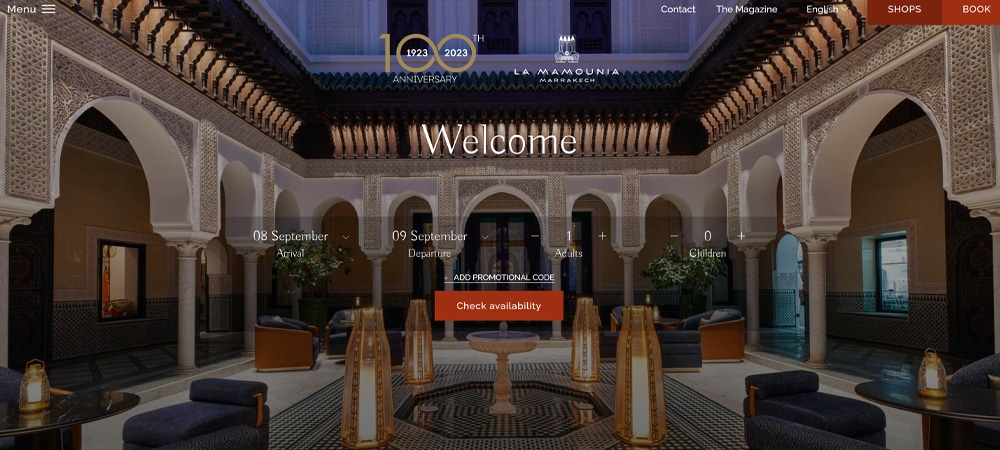
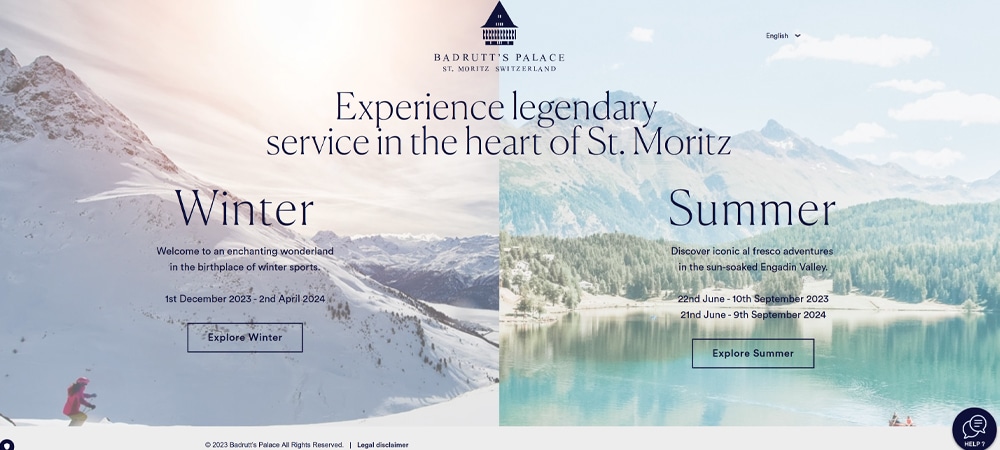
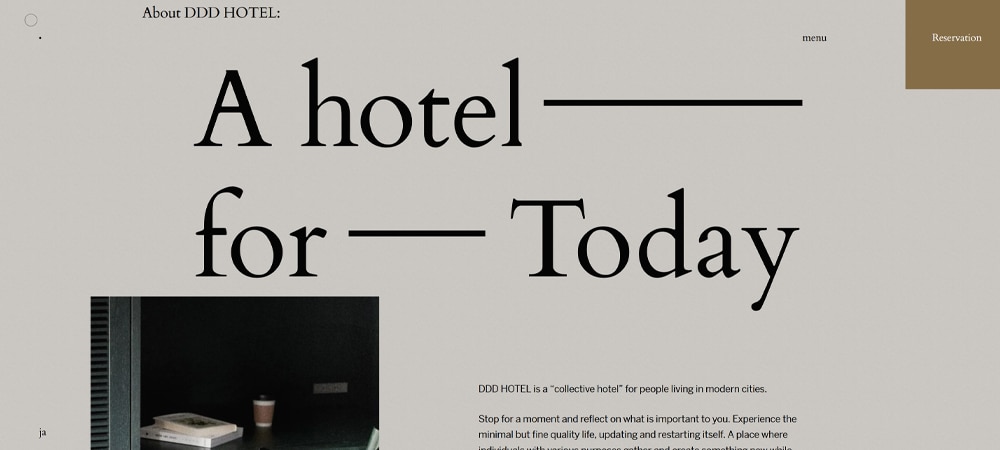
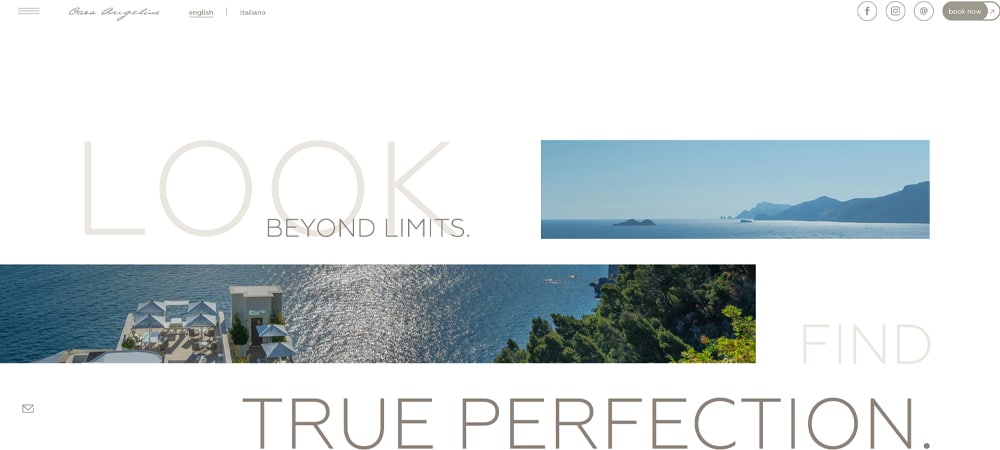
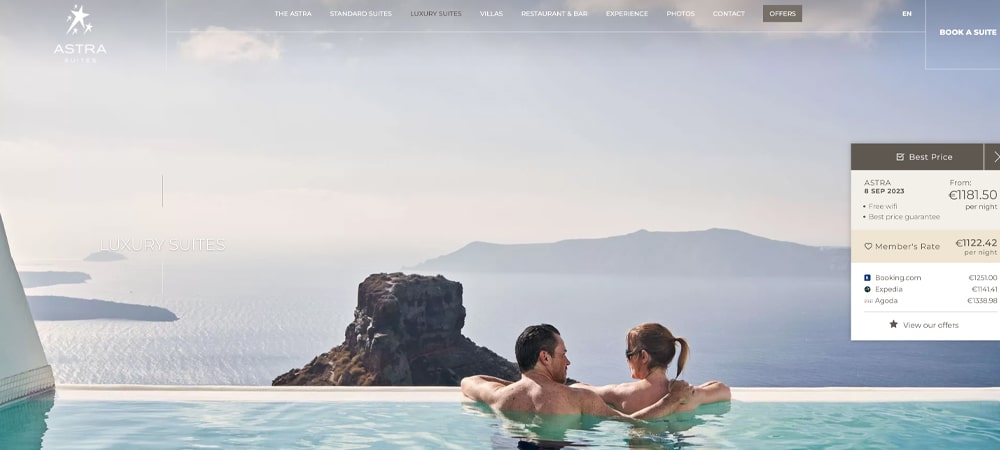
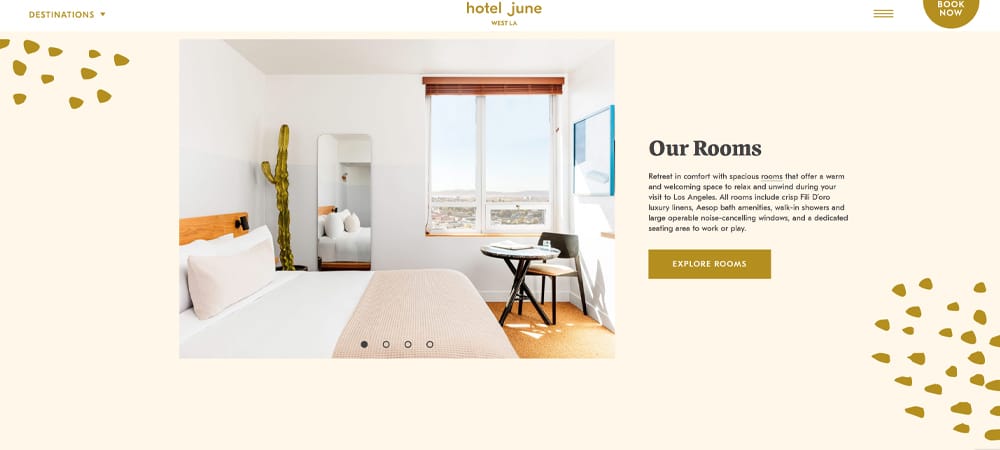

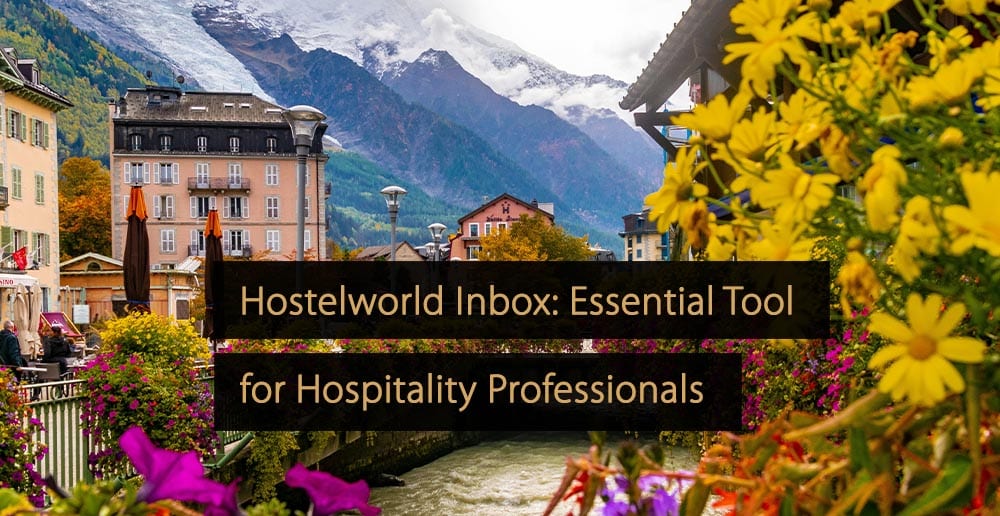
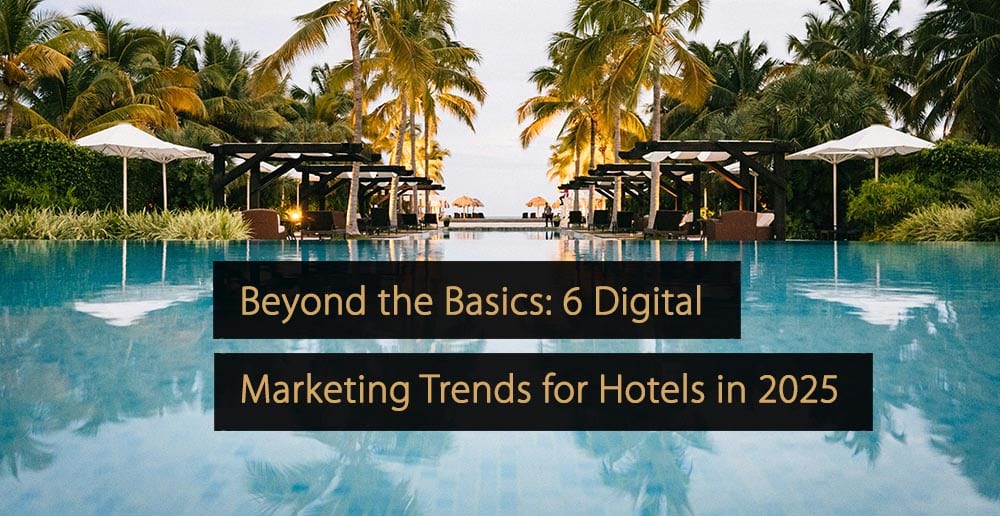




Leave A Comment